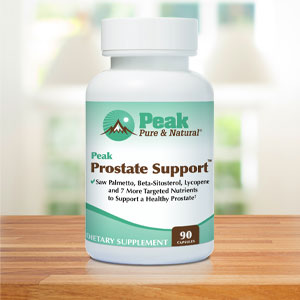Get Easy Health Digest™ in your inbox and don’t miss a thing when you subscribe today. Plus, get the free bonus report, Mother Nature’s Tips, Tricks and Remedies for Cholesterol, Blood Pressure & Blood Sugar as my way of saying welcome to the community!
Sleep longer with this 3-minute activity

Poor sleep over time can skyrocket your risk for heart disease, diabetes, and more.
That’s one reason why so much research has been conducted to find ways to help people combat insomnia and achieve a restful night’s sleep.
A recent study might seem to fly in the face of conventional wisdom, which cautions against exercising before bedtime.
When it comes to high-intensity exercise, that’s still good advice.
However, this study examines a different type of exercise, one that, when performed correctly, can actually lead to more hours of sleep.
Sleep longer and reduce risk of heart problems
Researchers at the University of Otago in New Zealand recruited thirty non-smokers, aged 18 to 40, to complete two 4-hour sessions in a controlled lab setting.
In one, they remained seated for four hours, while in the other, they did just three-minute bursts of simple resistance exercises every 30 minutes over the 4-hour period.
Activity trackers showed that after resistance training, with breaks in between, participants slept for an average of 27 minutes longer than they did after just sitting.
The researchers noted that there were no significant differences in sleep efficiency – uninterrupted sleep – or the number of times people woke during the night, whether they sat or exercised, indicating that the activity before bed didn’t disrupt sleep.
They also point out that by helping people sleep longer, especially those who are getting far less than the recommended nightly hours of sleep, this type of resistance activity before bed could potentially reduce the number of people with heart disease over the long term.
And guess what? This isn’t the first time resistance exercise has been shown to improve sleep…
Another study found that compared to aerobic exercise, resistance exercise:
- Increased sleep time by 40 minutes
- Decreased the time it took to fall asleep by three minutes
- Improved sleep quality and sleep disturbances
What is resistance training?
When we talk about resistance exercises, we’re not referring to activities like running, cycling, or other high-intensity exercises.
Resistance exercise increases muscle strength by making your muscles work against a weight or force.
You can do resistance training at home with no equipment other than your own body. Some examples of this include doing push-ups, squats, stair climbing (which offers great cardiovascular benefits), and lunges.
Elastic bands, known as resistance bands, as well as free weights, can also help and are easily found in big-box stores or online.
Check out this resistance band workout for beginners and seniors to see what I’m talking about. It’s a full-body 30-minute routine, but could easily be broken into three-minute segments.
And the best time for these activity bursts — during commercial breaks while watching the evening news and your favorite shows!
More ways to ensure a solid night of sleep
Apparently, once we reach 60, there are changes to the built-in time clock that regulates our sleep-wake cycle, known as the circadian rhythm.
In addition to resistance exercise bursts, there are things you can do to improve your sleep, and they don’t involve the dangers of sleeping pills.
Melatonin is one of my favorites. Not only is it a safe and natural sleep aid (your body produces it to an extent), but people who supplement it regularly are also much less likely to develop age-related macular degeneration. That’s a win-win.
Some foods help produce the neurotransmitters that are needed to put you to sleep. Cherries are one. At the same time, the wrong foods can increase your risk for chronic insomnia.
One thing to avoid in the evening is blue light from your smartphone or tablet. That can undercut all the new ways you’ve just discovered to sleep better and longer.
Editor’s note: There are perfectly safe and natural ways to decrease your risk of blood clots including the 25-cent vitamin, the nutrient that acts as a natural blood thinner and the powerful herb that helps clear plaque. To discover these and other secrets of long-lived hearts, click here for Hushed Up Natural Heart Cures and Common Misconceptions of Popular Heart Treatments!
Sources:
Resistance exercise ‘activity breaks’ at night may improve sleep length — Eureka Alert














